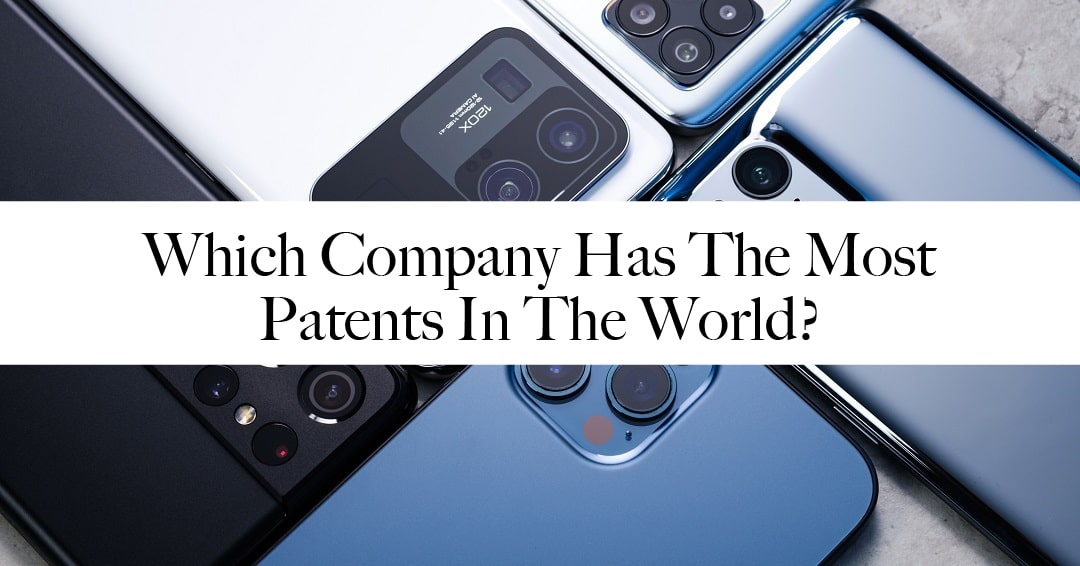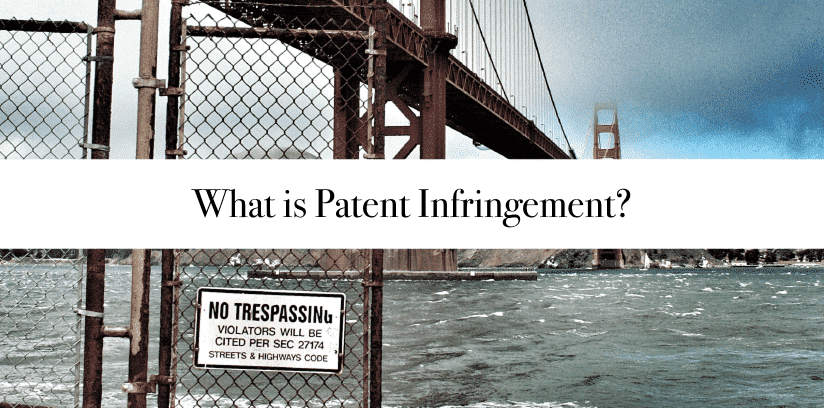Originally posted on April 16, 2024 @ 7:55 am
In the constantly changing world of technology and creativity, patents serve as treasure maps showcasing a company’s true level of innovation. They’re akin to secret recipes providing a glimpse into the minds behind the indispensable gadgets and gizmos. If you’re interested in knowing which companies are at the forefront of future developments, keep an eye on their patent performance. It’s an exciting race, and by exploring the realm of patents, you’ll uncover the wizards and their enchanting spells crafting the future. Believe me, it’s an adventure worth embarking on.
The quest to determine which company holds the most patents in the world leads us to a dynamic interplay between historical titans of industry and contemporary leaders in technological advancement. It is a reflection not only of the number of patents a company possesses but also of its commitment to innovation, strategic business planning, and influence on global markets.
Patent portfolios are a testament to a company’s innovative capabilities and future potential. Entities across diverse sectors, from telecommunications to pharmaceuticals, vie for the top spot in global patent holdings. The significance of this leadership is vast, impacting everything from market dominance and technological progress to international policy and intellectual property law.
Analyzing the companies at the forefront of patent acquisitions offers insights into trends shaping the technological landscape and future economic trajectories.
Key Takeaways
- Patents are an essential measure of a company’s innovation and research prowess.
- Global leadership in patent holdings reflects strategic business acumen and market influence.
- Observing patent acquisition trends is key to understanding economic and technological forecasts.
Historical Overview of Patent Leadership

In the landscape of innovation, patent leadership has shifted numerous times, reflecting corporate and national investment in research and development (R&D).
Evolution of Intellectual Property
Intellectual property (IP) rights have evolved significantly to protect and encourage innovation.
The World Intellectual Property Organization (WIPO), established in 1967, became a key international body for the protection of IP, driving technological progress worldwide.
In the U.S., the constitution empowered Congress to promote the progress of science and useful arts by securing for limited times to authors and inventors the exclusive right to their respective writings and discoveries.
This legal foundation catalyzed an environment conducive to R&D and patented innovation.
Key Players Over the Years
Japan and South Korea emerged as dominant forces in patent filings during the late 20th century. They leveraged targeted R&D to gain a competitive edge. However, as the global economy evolved, China witnessed an exponential rise in patent applications and became the global leader by 2018.
In contrast, U.S. patents have consistently been an indicator of innovation and technological progress. Players like IBM have historically held substantial patent portfolios.
These shifts mirror the dynamic nature of technological advancement and economic prioritization across different regions.
Current Leaders in Global Patent Holdings

In the landscape of intellectual property, certain companies stand out for their extensive patent portfolios that drive innovation and global growth.
Sector-Specific Patent Dominance
Samsung Electronics is a formidable force, leading the pack with a robust portfolio in technology and electronics. Their strategic focus on R&D has translated into a high volume of patents, which underpins their market position.
Samsung’s commitment to innovation is evident in their consistent ranking at the top of global patent holders.
IBM (International Business Machines), known for its long history in computing, continues to secure a high number of patents annually. The company’s contributions to cloud computing and AI technology reflect in their substantial patent counts, showing their dedication to pioneering advanced technologies.
On the list of global leaders, Canon K.K. remains a significant name, especially in imaging and optical products. By nurturing a potent mix of engineering and intellectual property, Canon has maintained a strong patent presence, particularly in camera and imaging technology.
In the realm of semiconductors, Taiwan Semiconductor Manufacturing Co. Ltd. (TSMC) has made immense strides. Their focus on semiconductor manufacturing technology has helped them amass a critical number of patents, ensuring a commanding role in the global semiconductor market.
Qualcomm and Intel Corporation are also powerhouses in the patent landscape. Qualcomm’s extensive portfolio in mobile communications helps it to sustain leadership in this sector, while Intel’s innovations in processor technology affirm its status as a patent giant.
From the communications sector, both Apple Inc. and Huawei Technologies Co., Ltd. are noteworthy patent holders. Apple’s patents cover a broad spectrum of technology, from devices to software, whereas Huawei’s vast patent holdings bolster its position in telecommunications and networking.
LG Corporation and Sony Corporation, both with substantial patent libraries, drive invention in consumer electronics and entertainment technology.
Influence of Artificial Intelligence and Quantum Computing
The intensifying competition in technological innovation is highly evident in the realms of Artificial Intelligence (AI) and Quantum Computing. We are witnessing an upsurge in patent applications as companies strive to protect their advancements and establish intellectual property rights in these areas.
Patenting AI Innovations
We’ve observed a significant surge in AI-related patent applications. As AI intertwines with various sectors, from healthcare to finance, the scope for innovation widens.
Machine learning, a subset of AI, remains at the forefront, with companies vying to protect novel algorithms that promise to revolutionize industry standards.
- Number of AI patents filed: Showing consistent year-on-year growth.
- Leading sectors filing AI patents: Healthcare, Automotive, Finance, and Robotics.
Quantum Computing Patent Landscape
The quantum computing sector is rapidly evolving, with businesses exploring its potential to solve complex problems beyond the capacity of classical computers. As such, securing patents in this domain is not just about protecting IP but about leading the next wave of technological progress.
The landscape is dynamic, with a marked increase in patents related to quantum algorithms and hardware innovations.
- Key areas of patenting in Quantum Computing: Quantum cryptography, computing algorithms, and sensing technologies.
- Influence on businesses: Quantum computing promises to greatly enhance computing power, impacting sectors like logistics, cybersecurity, and more.
Patent Trends During and After COVID-19 Pandemic

The COVID-19 pandemic significantly influenced patent filings, with a notable surge in health-related innovations. Here we examine the variances in patenting activity, with a specific focus on the health sector.
Impact on Health-Related Patents
During the onset of the COVID-19 pandemic, we observed a swift rise in patent applications related to health, signaling a global effort to tackle the crisis. This rapid increase in innovative activity heralded an era where urgent health challenges spurred broad intellectual responses.
Inventive solutions were not confined to the development of vaccines or therapeutics; companies and researchers endeavored to advance a range of medical technologies.
The drive for remdesivir-based inventions against COVID-19 and other disorders is a salient example of this intensive patenting period. Moreover, an analysis of patent trends revealed that in the wake of the pandemic, an increased number of patents were filed in areas key to fighting the virus.
Studies such as Innovation management in crisis: patent analytics as a response to the COVID‑19 pandemic detail the relationship between pandemic pressures and innovation, underlining the trend of a climb in patenting activity during these challenging times.
Role of The World Intellectual Property Organization
The World Intellectual Property Organization (WIPO) facilitates the protection of innovations across the globe. As an agency of the United Nations, it strives to ensure that the rights of creators and businesses are respected and that they can benefit from their inventions.
WIPO’s Global Database
We maintain a comprehensive database that provides access to a wealth of patent information. This global database is a tool that allows businesses, researchers, and the public to search for patent information from multiple national and international sources. It is an essential resource for companies like International Business Machines (IBM), which holds a significant number of patents and is recognized for its global growth driven by innovation.
By tracking patent grants and filings, WIPO’s database helps us understand the landscape of intellectual property. It guides our decisions in strategizing intellectual property management, underlining the role that WIPO plays in fostering an environment conducive to innovation and creativity worldwide.
Regional Analysis of Patent Portfolios
As we examine the landscape of patent ownership, it’s evident that different regions exhibit unique trends and strengths in their patent portfolios.
Innovation in Asia
Asia has rapidly become a hub for patents, with countries like China, Japan, and South Korea leading the way.
- China has experienced an explosive growth in filing patents, paralleled by significant investments in research and development. In 2023, the country accounted for a substantial share of global patents, emphasizing its commitment to technological progress.
- Japan and South Korea also have strong patent portfolios, showing expertise in electronics and automotive industries among others.
- Taiwan and India continue to enhance their innovation capabilities. Taiwan’s prowess lies in semiconductor manufacturing, while India is increasing its focus on tech sectors.
Patent Progress in Europe and North America
Moving to the west, Europe and North America demonstrate a mature patent environment.
- Europe’s cooperative patent system via the European Patent Office (EPO) encourages regional development and simplifies the process for members.
- The United States holds a position of strength with a vast number of patents, particularly in the tech and pharmaceutical sectors.
- Investment in research hubs and collaboration between universities and industries bolster North America’s patent production.
Patenting Strategies of Top Technology Companies
In managing their intellectual property portfolios, top technology companies like Apple, Samsung Electronics Co., Ltd., and LG Electronics deploy rigorous strategies to stay at the forefront of innovation in fields such as AI and quantum computing.
Intellectual Property Management
Intellectual Property (IP) ownership is a critical part of maintaining a competitive edge within the technology sector.
Apple, known for its extensive patent library, focuses on both incremental and disruptive innovations to fortify its market position. The company’s approach balances the development of next-generation technologies like AI and quantum computing with protecting more foundational intellectual property.
Samsung Electronics Co., Ltd. also harnesses a robust IP strategy, often leading the global race in the number of patents filed. Their success hinges on a comprehensive understanding of intellectual property management, where patenting is one part of a broader strategic framework that includes advancements in various technological domains and active defense of their IP rights.
Meanwhile, LG Electronics emphasizes securing patents in strategic areas to protect its innovations and support its growth in the global marketplace. This proactive IP management ensures that LG maintains a strong foothold in essential technology domains, while also exploring emergent fields such as AI-powered solutions.
The Future of Patenting in the Technological Sector
As we explore the landscape of patents in the technology sector, it’s crucial to consider how emerging technologies and evolving intellectual property laws will shape the future of innovation.
Emerging Technologies and IP Laws
The introduction of AI and machine learning has significantly altered the innovation ecosystem within the technology sector. Intellectual property rights are adapting to these changes, necessitating new frameworks for patent laws that can handle the unique nature of AI-generated inventions.
Similarly, quantum computing is on the brink of transforming computational capabilities, potentially affecting everything from data security to patent processing itself.
Our examination of patent trends suggests a future where technological progress in these fields could lead to a surge in patent filings. The complexity of innovations in areas like AI requires us to rethink traditional IP laws to ensure they continue to incentivize and protect genuine innovation while keeping pace with rapid advancements.
| Key Entity | Relevance in Future Patenting |
|---|---|
| Intellectual Property | Essential for protecting new ideas and incentivizing innovation |
| Innovation | Drives the need for robust and flexible patenting systems |
| Technology Sector | The primary source of cutting-edge patents |
| AI and Machine Learning | Emerging areas with potential patent complexities |
| Quantum Computing | Could revolutionize data handling in patenting |
| Future | Indicates a trend towards increasing patent registrations |
| Technological Progress | Relies on protective measures to continue thriving |
We’re witnessing a transition period where IP laws will have to be adaptive to maintain the balance between public interest and the rights of the inventors. Our understanding of these entities helps us maintain a clear and informed perspective on what lies ahead in the domain of patenting within the technological sector.






